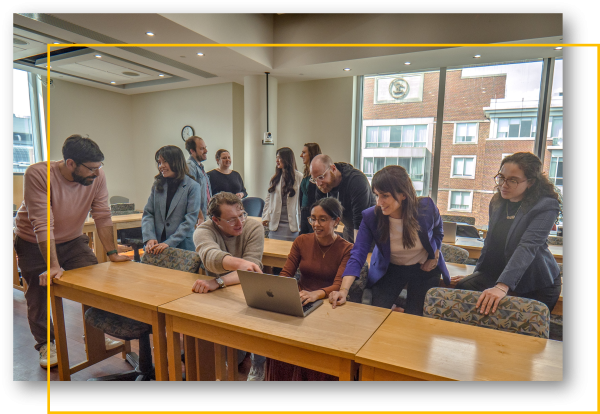
About
We analyze how networks shape exposure to information, mediate the political process, and facilitate civic engagement.
|
Communication technologies, including the internet, social media, and countless online applications, create the infrastructure and interface through which many of our interactions take place today. These technologies also determine how we create and consume information, and how we disseminate content to find an audience. |
The information we see, the opinions we express, and the ideas we promote activate core mechanisms in the functioning of democracy. If communication gives a beating heart to the public, information networks create the arteries of the body politic. ◪ |

|
Algorithms (e.g., news feeds, generative AI) are increasingly in charge of selecting the content we see. We aim to uncover how algorithms and users make choices and how these choices interact to amplify certain types of information. →
Networks give us the ability to organize without organizations, and build the critical mass necessary for successful mobilization. We analyze the network properties that facilitate the diffusion of information and pro-social behavior. →
Communication networks can reinforce or create new forms of inequalities (e.g., in access, in representation). We aim to uncover the divides that emerge from online interactions and the production or retrieval of information. →
Network ties can bring people together but they can also set them apart. We analyze the ways in which online behavior increases the fragmentation of the public and segregation along ideological lines. →
Digital technologies have multiplied the number of sources offering political news; they have also multiplied the channels that can be used for dissemination. We aim to analyze this universe of content and how it is consumed. →
Deliberation and the expression of political opinions have largely moved online; so have conflict and toxic behavior. We analyze the psychological and sociological mechanisms that trigger engagement in the political process. →
|
Sandra González-Bailón, Ph.D. |
Yphtach Lelkes, Ph.D. |

